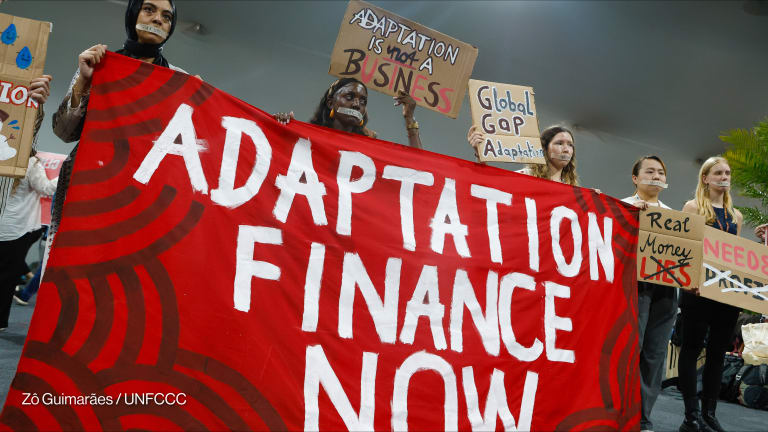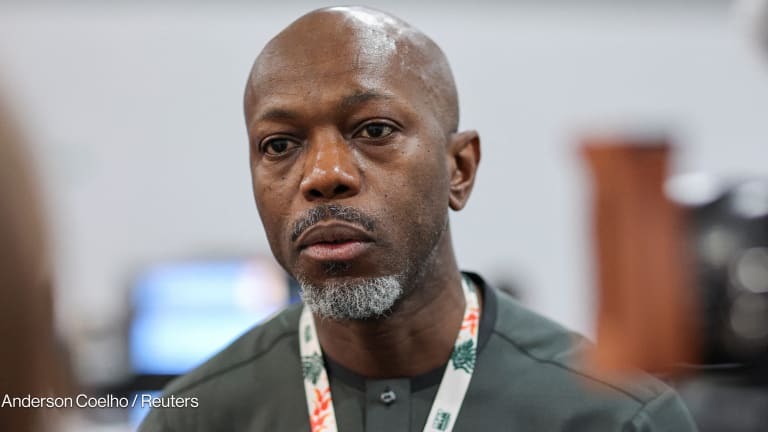
BONN, Germany — The intersection of agriculture and climate change has received significant attention at the COP23 climate negotiations in Bonn, Germany. Amid reports that global hunger is growing for the first time in a decade and worries that rising temperatures will only make the situation worse, delegates are scrambling for strategies to adapt agricultural processes to this changing world.
On the sidelines of the negotiations, the Food and Agriculture Organization put together a high-level roundtable to discuss whether it is possible to achieve an end to hunger by 2030, — the second Sustainable Development Goal — while also tackling climate change.
José Graziano da Silva, FAO's director-general, spoke to Devex about the issues tackled by the roundtable and his organization's role in helping to guide policy and attract money for agricultural adaptation. Our conversation has been edited for length and clarity.
COP23 climate talks make leap forward on agriculture agreement
After a years-long delay, negotiators in Bonn adopted a draft agriculture agreement that officials hope will lead to the actual implementation of policies to address both climate change and food security. Ministers are expected to ratify the agreement before the end of the week, marking a significant win for the COP23 talks.
What do you see as the major challenge at the moment when it comes to the intersection of climate change and food security?
Implementing is not a wish. You need to have funding. You need to have technical support. And the countries that have the most need — the developing countries, the small island developing states — don't have any capacity to do that. This is a really big challenge.
Things are moving so rapidly that finally the countries realize that they need to do something. Especially the private sector now. Things are moving, but most of the movement until now has been defensive movement. To give an example, resistance to drought. The impact of El Niño in the last two or three years has been devastating, in Asia and especially Africa. From Ethiopia to the south, the impact of the drought lasted eight months last year and was devastating for crop production and livestock.
We are taking action, but, unfortunately, it is reaction to those situations after it happens. And unfortunately with very few funds dedicated to that.
Will there be money for more implementation?
Fortunately, we have some mechanisms, like the Green Climate Fund, that are starting to become operational. We hope that this year, next year, this will be an implementing year of the Green Climate Fund. We are a bit more optimistic that this will happen in the near future. But for now, we are losing the game by far.
We need to increase the scale, intensify the projects — particularly on the adaptation side. We had a lot of progress that can be implemented. Technology is already available.
What happens if the money doesn't arrive?
We brought nine leaders of small island developing states to the FAO. The raising of the sea level for most of the countries in the region will destroy them completely. They're talking about a sinking country, a sinking island.
They have started to discuss possibilities of moving to other countries. It's like a post-future discussion. They are not seeing that they will have the capacity to avoid this. They are asking for funding mechanism and they don't have access until now to the Green Climate Fund. There's a total complicated process for [drafting proposals]. And they don't have that means, that capacity.
We are assisting that. But our capacity is also limited. We are giving priority to them, but we have a list of 28 priority countries — small island and low development countries. We cannot do that 28 countries at the same time.
It does not mean it is not possible to reduce the impact and start to adapt during the meantime. And that's what we are trying to do. We are not waiting for what we can do to move ahead. We are starting.
What other steps is FAO taking in this process?
In the last two years, we have shifted to give priority to the impacts of climate change, because we realize this is frustrating our main mandate, which is to eradicate hunger. Two years ago, we had a very clear picture that the impact of climate change was one of the main drivers of hunger, with conflict. When you put together conflict and drought, this is devastating. And you step back all the progress made in the last 10 or 20 years. We realized that very clearly two years ago. So we started to move and adapt the organization.
I have to say that all of the things are now oriented to climate change. Climate change is affecting everything we do. There's no one thing that FAO does in this moment that's not affected by the impact of climate change.
“It’s one thing what the U.S. government says — but another thing is what the U.S. private sector does.”
— José Graziano da Silva, FAO's director-generalWhat impact does a U.S. withdrawal from the Paris Agreement have on your efforts?
The significant impact is only about concern. First, because there is no concrete action. They're still there. Second, because it’s one thing what the U.S. government says — but another thing is what the U.S. private sector does.
While we see a completely different path, the private sector is taking concrete action to respond to climate change. Not only the private sector. The public sector, the cities, the governors — all other levels except the federal level are doing the same.
In this moment, we didn't see the impact. We hope this will not translate into cutting off support of research into strategic areas. The U.S. is fundamental on this research. This research is fundamental. And research is the most costly of all those measures that we need to take. Only big countries can fund research on adaptation of the climate change impact. And among them, the U.S. is the leader, no doubt. Fortunately, the universities and the research system are taking that seriously. But of course, support from the federal government would be helpful.
Read more Devex coverage on the COP23 and sign up for our daily briefings.
Read more Devex coverage on COP23:
▶ Q&A: 'There has been a shifting of goalposts at COP23'
▶ Q&A: How climate risk insurance can work for developing countries
▶ 'Alternative' US delegation to COP23 tries to reassure climate partners
▶ Can Fiji deliver a developing countries' climate conference?
▶ How to make a success of COP23: Q&A with Barbara Hendricks
Sign up for our COP23 daily briefings here.








